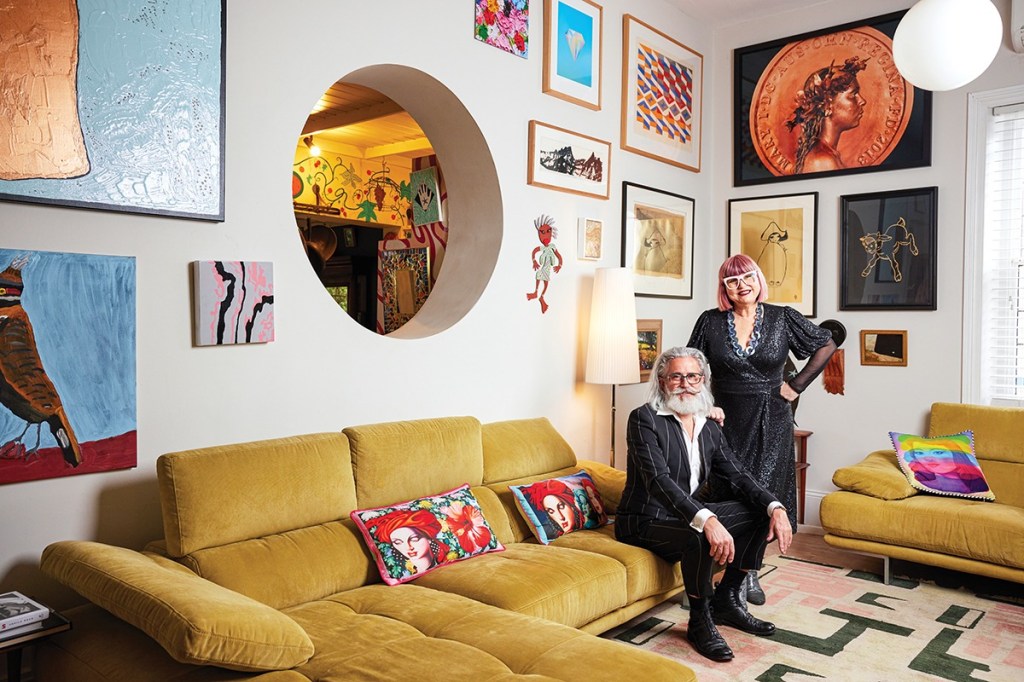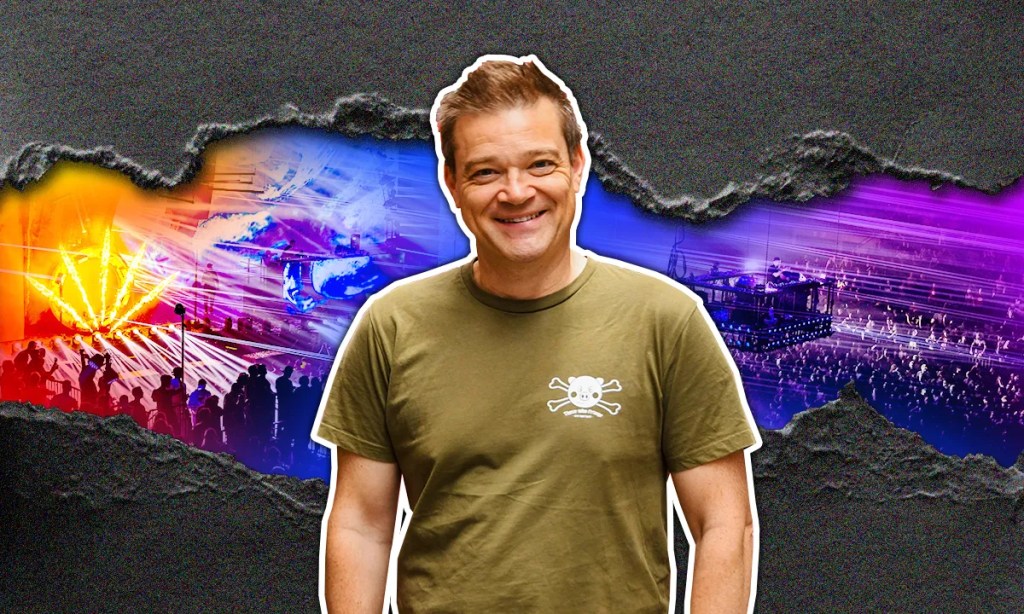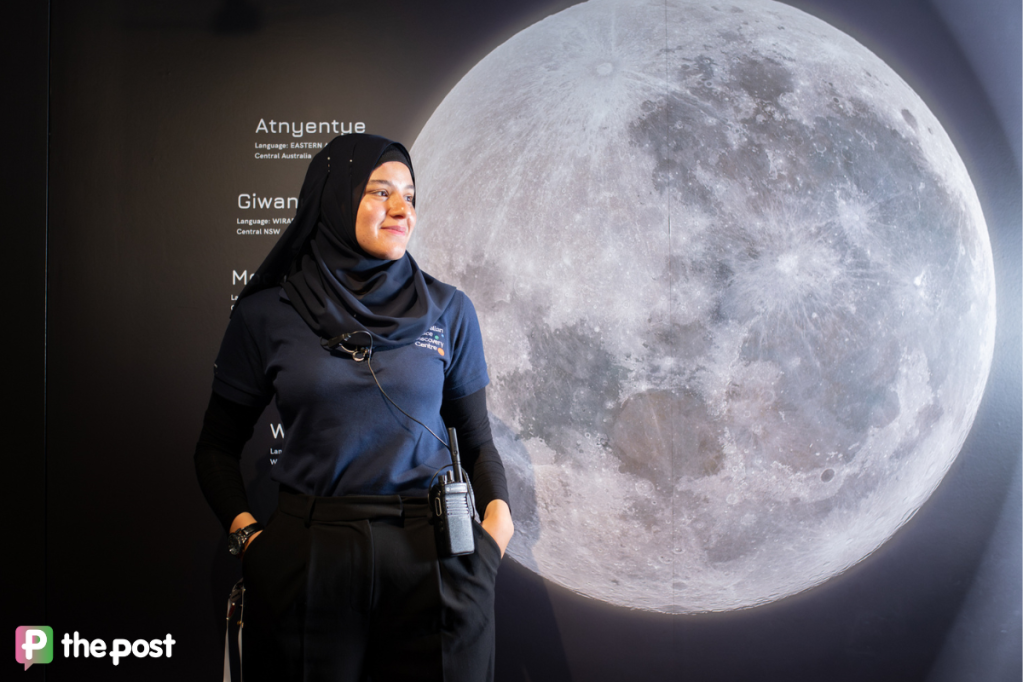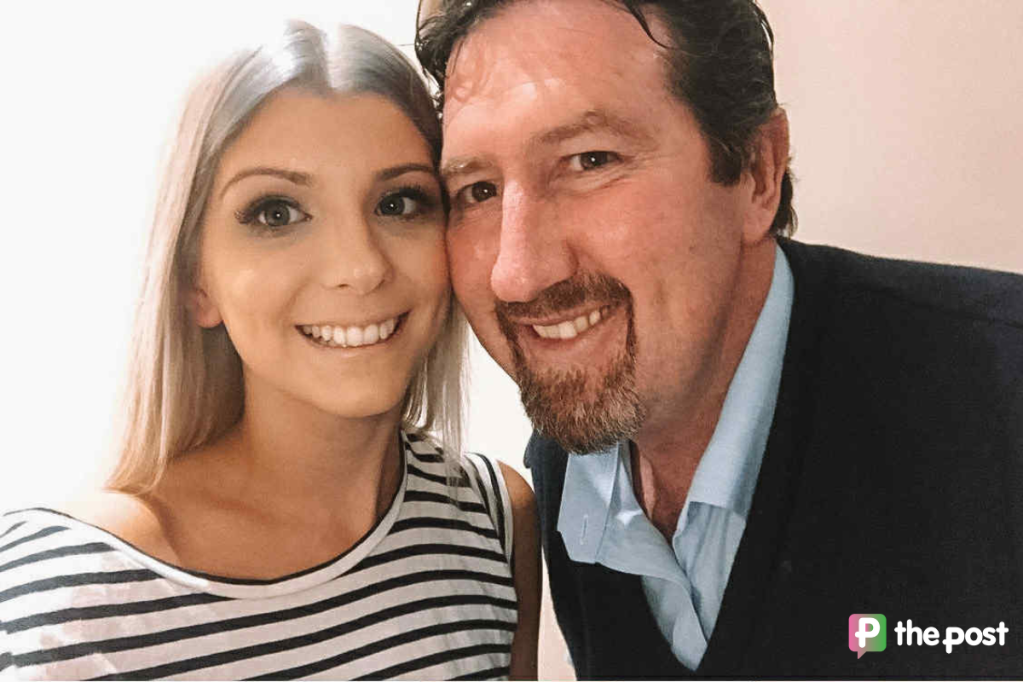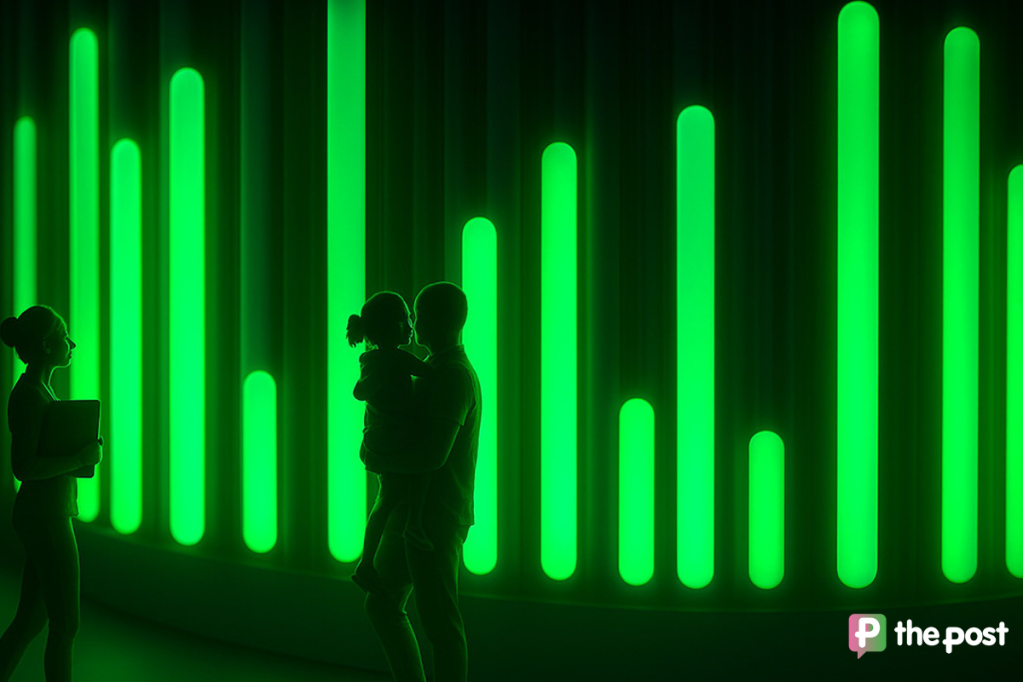Gluttony in a box
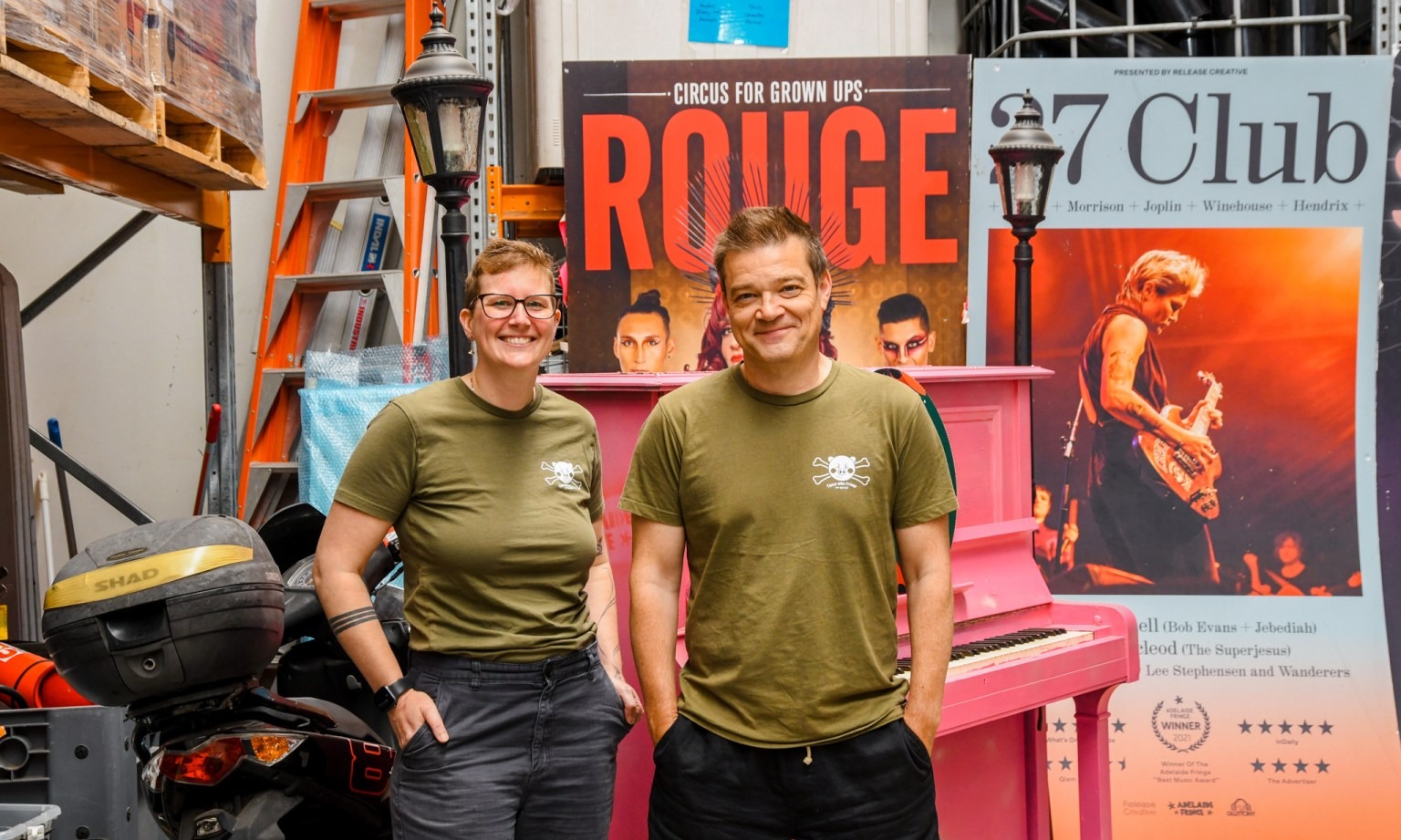
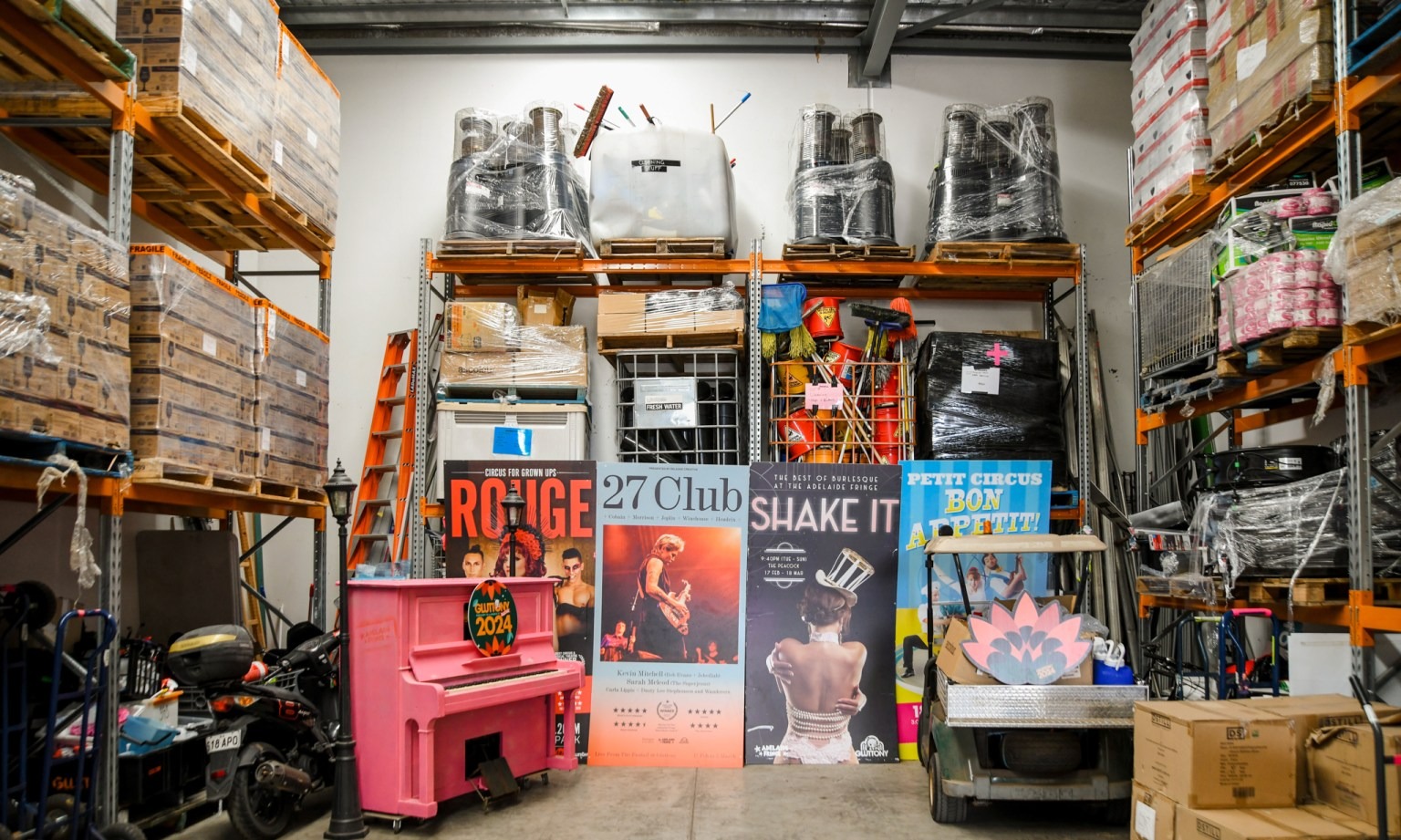
Squashed inside a warehouse hides all the colourful parts that make Gluttony glow during Fringe time. CityMag had a peek and learnt all about how they came to be.
Nondescript warehouses line the suburban street one after the other, as we walk down in search of Gluttony.
We come to a stop next to a ute with a green plastic pig shoved inside, parked outside a warehouse with glistening mirror balls dangling from a ceiling fan just inside the open roller door. CityMag’s in the right place.
“There’s actually a practical reason why it’s there,” co-director Daniel Michael says in regards to the hanging mirror balls.
“We were like ‘where are we going to put this so that it doesn’t get smashed?’ And someone was like ‘we’ll just hang it up.’”
This warehouse is Gluttony – but squashed into a box. Fringe show posters of Hans, Rogue and Bernie Dieter are slapped across the walls, boxes of Alpha Box and Dice wine sit atop containers of cleaning stuff, while a pink, Gluttony-branded piano sits waiting for a player.
Daniel and fellow co-director Elena Kirschbaum walk CityMag upstairs where a team of full-timers are glued to their computer screens. As we close the door to the main office, the team begin to chat and laugh in a very ‘I work for one of the biggest Fringe hubs in South Australia’ way.
Starting as a one-weekend food and wine festival in 2010, Daniel could see a gap in the market for a different type of Fringe venue.
“From that, I got the idea that we should maybe do it as a venue – a proper Fringe venue,” Daniel says.
“Both business partners kind of lost interest, I got another business partner, and we ran the first Gluttony as it is today in 2011.”
Although on the exterior it seemed to be a fun-filled, thriving festival, deep down it was far from that. Daniel wasn’t even able to pay himself.
When 2014 hit, he says his business partner was “sick of losing money”.
“I mean, I was sick of losing money as well, but I was still enjoying it in some way,” Daniel says.
You might like
“So, then I said to El, I’ve got this great proposition for you: I’ve got this event that has never made any money, it’s really hard work, it’s extremely stressful, people shout at you all the time. You want in?
“She said yep.”
“With that sales pitch, how do you say no?” Elena laughs, sitting beside Daniel in a matching green t-shirt emblazoned with a small Gluttony logo that she insists was worn by accident and isn’t some corporate dress guideline.

Elena had always wanted to be a circus performer, but claims she “naturally was a way better organiser and producer”.
She ran her own events company called Highwire Event & Entertainment – which still exists today – that she started straight out of school in Canberra. This resulted in her producing her own tent in Gluttony before jumping on board to co-direct.
Daniel and Elena balance each other’s strengths and weaknesses. She was what they needed to stamp their authority as a thriving Fringe venue. Daniel says Gluttony’s “relationship with artists changed when El came on as a director”.
“I’d had a bunch of event management experience that was quite complementary to Daniel: so, had never run a site – certainly of anything like the scale that we were doing at Gluttony, hadn’t run bars,” Elena says.
“But in terms of liaising with really different style of artists than Daniel was used to, and running venues and [understanding] the requirements that artists needed, I think we had really complementary skill sets.
“Because I had pursued being a performer and also produced my own theatrical shows, I had that experience from the artists’ perspectives as well.”
Aside from the hardships, it was the experience that made Elena want to pursue this line of work.
“I think it was the people. If the people and the camaraderie wasn’t there, then there would be no sense of adventure. It would just be the slog, it would just be hard work,” Elena says.
“There was just so much joy in that, in spending such a period of time having this adventure at this big arts festival. It was a really unique experience.”

Daniel and Elena made a bold move to push forward and created something that now goes beyond Fringe time.
This dynamic duo has built a hub that is filled with diverse Fringe shows, and claim it has something for everyone.
“Our space always felt friendly, even on a busy, drinking Saturday night,” Elena says.
“To add to that, I have two canaries: one is my children, and the other one is my mum,” Daniel says in response.
Subscribe for updates
“If they’re both comfortable in the venue, I think we’ve done a good job.”
The Gluttony of today prides itself on accessibility in all aspects.
“I think we tried to create something that was quite unpretentious. That really feels like there’s offerings that are at that premium level, but there’s also accessible spaces,” Elena says.
“You don’t have to come in and spend a lot of money; you also don’t have to come in and over-commit yourself – you’re going to feel comfortable and safe no matter what you’re wearing.”
“If you want to come and have a day with your kids and spend nothing you can. If you want to come in and spend quite a lot of money and get very high-quality food and beverage, you can do that as well,” Daniel adds.
With accessibility comes representing marginalised communities, and Elena says that element is important to Gluttony, but thinks it’s also just “a really important part of Fringe”.
“Because I think that’s a really important part of the arts, I think the arts is all about learning about different people and learning about different stories,” she says.

Elena appreciates that multiple players in the Adelaide Fringe contribute to its diversity, and understands they are an integral part of representing art.
“I think that is such a fantastic thing about the Fringe Festival – it’s not curated by a particular person,” Elena says.
There’s not just [one] person who’s deciding which stories to tell.”
This brings up the conversation about Gluttony’s relationship with The Garden of Unearthly Delights, and Daniel advises us that “I don’t think we’re direct competitors”.
Rather than seeing each other as competition, Elena says they “have more in common with The Garden than we do as a competitor”.
“We’re having the same sort of conversations with the council, with the state departments… as far as I mean our biggest competitor isn’t The Garden, it’s Netflix, or it’s sporting events,” she continues.
But when the initial ideas of a Fringe long hub began in Daniel’s mind, he admits part of his motivation was realising “the biggest venue in town wasn’t run out of South Australia”.
“And that annoyed me as a parochial South Australian — I didn’t like that,” he says.
“I didn’t think there was anything about having a postcode that started in five that should prohibit you from running a good Fringe venue.”
As for The Garden of Unearthly Delights, it does have a Victorian base, but co-founder Michelle Buxton says the enterprise generates approximately $33 million in economic impact for South Australia including jobs.
“Out of 100 plus build crew members, approximately 12 come to South Australia from other states and countries,” Michelle says. “We have hundreds of staff outside of our bump-in crew working in areas including marketing and publicity, front of house, bars, site management, lighting, sound, box office, art department and more. Many are from South Australia and work on The Garden year after year.”
Michelle also believes The Garden’s long history helped create the opportunity for the Fringe to grow.
Back at the Gluttony warehouse, CityMag says goodbye to all the bits and bobs that give the hub its character: next time we come across the plastic pigs, the Hans posters and the dangling disco balls it will be in its most flattering setting.

This article first appeared in our 2024 Festival edition, which is on streets now.
